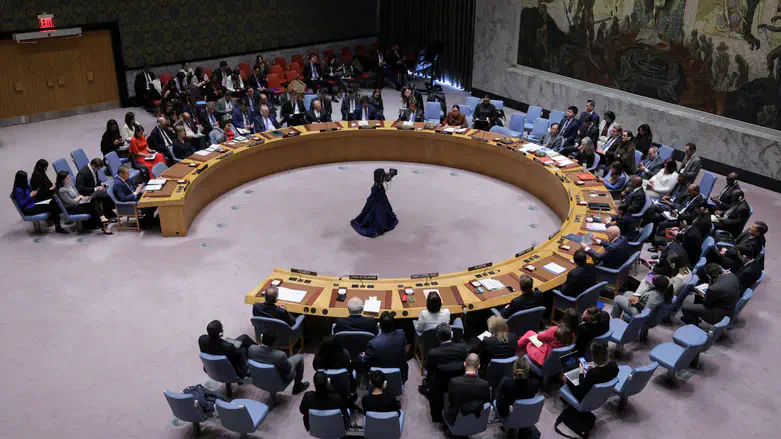
The United Nations Security Council is set to convene behind closed doors on Wednesday to discuss Iran’s increasing stockpile of highly enriched uranium, diplomats confirmed on Monday, according to Reuters.
The meeting was called by six of the council’s 15 member states—France, Greece, Panama, South Korea, Britain, and the United States.
According to diplomats, the discussion will also address Iran’s obligation to cooperate with the International Atomic Energy Agency (IAEA) by providing necessary information on undeclared nuclear material found at multiple sites in the country.
Iran’s mission to the United Nations in New York has yet to comment on the upcoming meeting.
Iran has expanded its nuclear activities since 2019, following the decision by US President Donald Trump, in his first term in office, to withdraw from the 2015 nuclear deal signed between Iran and world powers.
In its latest step to advance its nuclear program, Iran recently informed the IAEA of its intention to "significantly increase" its production of uranium enriched up to 60 percent.
An IAEA report in late February found that Iran has significantly escalated its production of near-weapons-grade uranium, with its stockpile of uranium enriched up to 60% reaching 274.8 kilograms, an increase of 92.5 kilograms since November.
Western nations argue that such high levels of enrichment are unnecessary for civilian purposes, noting that no other country has pursued this without producing nuclear weapons. Iran, however, insists its nuclear program is purely for peaceful purposes.
Under the 2015 deal, Iran agreed to limit its nuclear activities in exchange for sanctions relief from the US, Britain, France, Germany, Russia, and China.
Britain, France, and Germany recently informed the UN Security Council that they stand ready to trigger the "snapback" mechanism, which would reinstate all international sanctions on Iran to prevent it from acquiring nuclear weapons.
The window to take such action closes on October 18, 2025, when the UN resolution underpinning the 2015 deal is set to expire.

